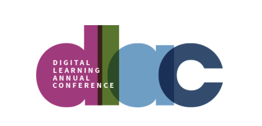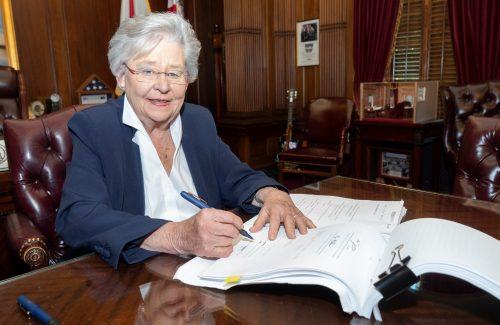Registration Information: We will open registration links next week. Please check the website link below.
https://www.nrea.net/2021-Convention-Research-Symposium
|
|
|  |
Rural Schools Collaborative is honored to have this essay featured by Giving Compass, a trusted platform to help individual donors learn about issues, get involved, and give with impact. You can find the original feature on their website. -- A sustainable American future depends on a thriving rural landscape. Unfortunately, our diverse rural regions are experiencing unprecedented challenges. These include the erosion of social capital, a brain drain of talented young people, and the impact of globalization. Exacerbating these issues is a growing rural teacher shortage, a thorny problem that may be complicated by a wave of Covid 19-related teacher retirements. Dr. Allen Pratt, executive director for the National Rural Education Association, believes the rural teacher shortage is undermining rural schools. Pratt said, “The search for highly effective teachers is an ongoing quest for small, rural school districts across the nation. It is one of the greatest challenges facing rural district superintendents and their boards of education.” |
| | Read More |
|
|
NREA signed the letter above with the BASIC Coalition. The letter was submitted to President Biden on May 13th, 2021. To read the full letter please click on the image above.
|
|
| While the challenges of rural schools have been discussed at length, they also have unique opportunities for innovation. Not only do rural schools act as centers for learning, but they serve their small towns as community hubs as well. Accordingly, rural schools are often better positioned to create opportunities for family engagement than their suburban and urban counterparts. This environment, coupled with the advantages of less bureaucracy and red tape than larger districts, has allowed rural schools to engage in some truly exciting, innovative work for students in recent years. |
| | Read More |
|
|
| About 42% of rural school districts were fully back to in-school learning by February, compared with 17% of urban districts, the survey found. The opposite was true for online learning: 29% of urban districts offered fully remote instruction, compared with 10% of rural districts and 18% of suburban districts. "This survey shows how the choice of remote instruction has ramifications that extend beyond longstanding concerns about the lower quality of remote instruction," said researcher Heather Schwartz, director of the Pre-K to 12 educational systems program at the RAND Corporation, a public policy research organization. "Rural districts -- which were primarily fully in-person or hybrid -- did not decrease instructional minutes as often as urban districts, which means that urban students of color have likely lost more instructional time this school year than their white counterparts in rural districts," she added in a RAND news release. |
| | Read More |
|
|
Hello,
As States across the Nation make decisions about how to spend the Federal COVID Discretionary dollars that are being allotted, it is vitally important for rural schools to voice their needs for improvements to school infrastructure. If you would like to learn more about the approved uses of these dollars, how to best advocate for rural schools, the inequities between high poverty school facilities and those in affluent divisions, and how the physical environment affects student learning, please SAVE THE DATE of June 10, 2021, to attend the Coalition of Small and Rural Schools of Virginia's "School Infrastructure Conference". The event will be held virtually, and registration information will be available next week at a very affordable cost to your district. Regardless of where you are located in the United States, rural students deserve to learn in a 21st Century Learning Environment. We are proud to join NREA in offering this opportunity to rural school leaders across the country.
If you have questions, please feel free to contact me directly.
Sincerely,
Keith Perrigan President The Coalition of Small and Rural Schools of Virginia Superintendent Bristol Virginia Public Schools |
|
| DLAC: Rural Educators June 8th |
|  |
Dear NREA members, DLAC 2021 has added a variety of sessions to address the needs of teachers and administrators that faced remote learning due to the pandemic. We know that rural educators face unique struggles in online learning. In addition to our three special online tracks ( How to Start an Online School, Online Teacher Track, Blended Teacher Track), we have a number of sessions dedicated just to rural educators. · How a rural district addressed continuity of learning during the pandemic using a variety of learning models, online tools, and digital content (Online) · The Fine Lines of Urban vs. Rural: How to Engage and Provide Equity for More Than 150 Square Miles (Live-streamed from Austin) · Creating Capacity and Access: Professional Learning for Personalization in Rural Communities (Online) · Meeting the Challenge: Rural Districts Finding Success with Digital Learning (Live-streamed from Austin) · Innovative Strategies for Enhancing and Expanding Access for Students and Schools in Rural Communities (Online) · State-Level Support for Equity and Access: Administration and Impact of Digital Learning Program (Online) All of the sessions listed above are accessible to both DLAC All Access and DLAC Online registrants. Due to the lifting of some COVID-related restrictions, registration for DLAC All Access in Austin is recently re-opened. Both registration types offer a group discount for those schools or districts registering five or more people. |
|
|
|
|
School district consolidation is one of the most widespread education reforms of the last century, but surprisingly little research has directly investigated its effectiveness. To examine the impact of consolidation on student achievement, this study takes advantage of a policy that requires the consolidation of all Arkansas school districts with an enrollment of fewer than 350 students for two consecutive school years. Using a regression discontinuity model, we find that consolidation has either null or small positive impacts on student achievement in math and English Language Arts (ELA). We do not find evidence that consolidation in Arkansas results in positive economies of scale, either by reducing overall cost or allowing for a greater share of resources to be spent in the classroom. |
| | Read More |
|
|
| The American School District Panel is the first nationally representative standing panel of school district and charter management organization (CMO) leaders in the United States. The panel provides an opportunity for superintendents and CMO leaders to share their perspectives and contribute to decisions about education policy and practice. |
| | Read More |
|
|
|  |
MONTGOMERY — Governor Kay Ivey Thursday signed into law the Teacher Excellence and Accountability for Mathematics and Science (TEAMS) Salary Schedule Program, an aggressive piece of legislation to combat the estimated 3,000 unfilled math and science teacher positions in 6-12 grade classrooms across Alabama. Starting in the 2021-2022 school year, well-trained and educated middle and high school math and science teachers could earn up to $15,000 in additional pay each year. “The quality of education in this state, particularly in rural, hard-to-staff areas, has to be solved to properly prepare our children for their futures in an ever-increasing STEM-based economy,” said Governor Ivey, who is herself a former teacher. “With TEAMS, we are placing emphasis on attracting both in-state and regional teachers in key subjects to move the needle in Alabama school systems.” The TEAMS program – introduced in the Senate by Donnie Chesteen (R-Geneva) and in the House of Representatives by Rep. Alan Baker (R-Brewton) will provide incentive pay for interested and qualifying math and science teachers. “In Alabama, our state takes a lot of pride in being number one in college football, yet we have settled far too long with being at or near the bottom in math and science scores,” said Sen. Donnie Chesteen (R-Geneva). “The TEAMS Act will allow Alabama to recruit more math and science teachers and enroll current teachers into the TEAMS program. This bill is a step in the right direction in preparing our state to remain competitive in the recruitment of STEM jobs of the 21st century. I look forward to seeing the positive improvements this will provide students in the future.” Each district can accept one TEAMS math and one TEAMS science teacher to participate in the program per 105 grade 6-12 students in the system — equating to roughly 7,000 teachers statewide. Prospective program teachers can apply to their district for a TEAMS position if they: - Hold a valid regular or alternate certificate for middle level and secondary math, science or computer science courses.
- Teach courses in mathematics or science in grades 6-12.
- Teach full time in mathematics or science, or both.
- Complete no less than four days of annual, high-quality Professional Development.
|
| | Read More |
|
|
| District Leadership Fellows is a virtual, strengths-based leadership development program. Run by the Institute for Leadership Impact at Southern Methodist University in Dallas, Texas - Open to school district superintendents and executive leaders who report directly to superintendents
- Applications close May 31, 2021
|
| | Read More |
|
|
EdSurge Survey Request:
Calling all PK-12 teachers in the U.S.: My EdSurge colleagues and I are looking for a diverse group of classroom teachers for a discussion and reflection session on an article about teacher-researchers. If you’re selected, you’ll receive a $100 Amazon gift card. Please apply here by May 18th:
|
|
| Rural Postsecondary Information: |
|
|
|
| When “More Research is Needed” Is the Key Finding: Improving the Evidence Base for Nonacademic Interventions for Postsecondary Success in Rural and High-Poverty Contexts |
|  |
Stakeholders in rural and high-poverty districts in Regional Educational Laboratory (REL) Appalachia’s region have noticed a troubling trend: many students graduate from high school academically well prepared but fail to enroll in college or enroll in college only to struggle and drop out within the first year. Stakeholders believe these high-performing students may face nonacademic challenges to postsecondary success, such as completing financial aid paperwork, securing transportation and housing at colleges far from home, or adjusting to campus life. To address these challenges, education leaders are looking for interventions that address nonacademic competencies: the knowledge, skills, and behaviors that enable students to navigate the social, cultural, and other implicit demands of postsecondary study. To fill this need, REL Appalachia researchers conducted a review of the existing evidence of the impact of nonacademic interventions – that is, those designed to address nonacademic competencies – on postsecondary enrollment, persistence, and completion. The review had a particular focus on identifying interventions that also have evidence of effectiveness in communities serving students similar to those in Appalachia—high-poverty, rural students. Only one intervention, Upward Bound, demonstrated impact in rural, high-poverty communities. The review showed that Upward Bound, as implemented in the early 1990s, benefited high-poverty rural students’ college enrollment, with no demonstrated impact on persistence or completion. |
|
|
|
| Sharing Information From Our Partners and Sponsors: |
|
|
|
 |
We believe students are more than their test scores and colleges are more than their rankings. Higher education is the gateway to expanded opportunities for advancement, yet far too many high school students fail to realize those opportunities. We set out to fix a flawed college admissions process.
Scoir has recently been adopted by large school districts across the country including Miami Dade and Orange (FL), Knox County (TN), Gwinnett County (GA), Freehold (NJ), Rockwood (MO), Dallas ISD (TX), Detroit Public Schools (MI), Hawaii, etc. We act as The College Admissions Network, providing every high school student with a world-class opportunity to explore careers, as well as engage in a thorough college admissions process. At the same time, counselors are equipped with robust tools to manage student progress and application documents.
We believe every child should have access to this network and as a result, we are committed to not charge Title I eligible high schools (schools with 40%+ of students on free and reduced lunches). We deeply believe that every child deserves an opportunity to reach their full potential and access the Scoir network. In addition, we’re the lowest cost provider for non-Title I schools (charging $1.68 per student) and as a result, we’re extremely affordable for all school districts. Scoir's mission to expand college access for all students is very closely aligned with the wonderful work you all do. Below are some overview resources, which you can feel free to pass along to your colleagues to give them an idea of all that Scoir offers.
Overview Video Content: Resources & Flyers: |
|
|
|
|